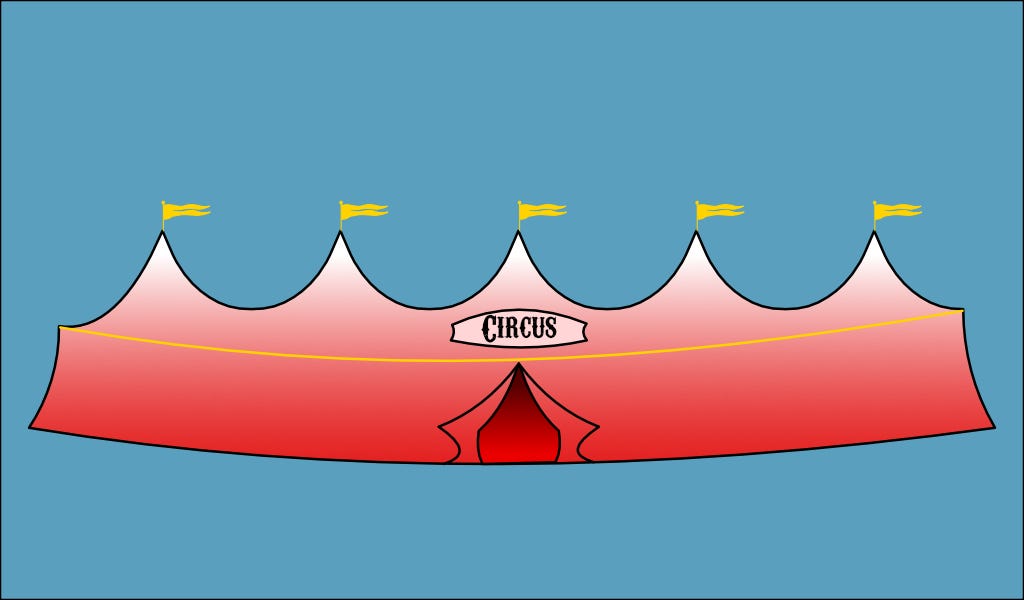One reason why I love neuroscience is because it can offer an explanation of why people act the way they do. As one example, learning about how a child's brain is underdeveloped in impulse control has helped me have more patience with children while working as a camp counselor.
Yet behavior is extremely complex and it has been difficult for me to wrap my head around how to think about the contribution of our biology and environment in a helpful way. If you look up "Neuroscience of X" you'll find detailed papers of how brain region "X" is active and neurons "Y" fire at a particular frequency. But what is the significance and greater context of all of this information? That has been my struggle for the last couple of years and I may have found a solution.
Recently, I started reading the book "Behave: The Biology of Humans at Our Best and Worst" by Robert Sapolsky, a professor of biology and neurology at Stanford. In the introduction, Sapolsky provides a useful framework for behavior which I have adopted as the Circus Tent of Behavior.
First, he puts forth a point that I wrote about recently which is the problem with categorical thinking:
"When you think categorically, you have trouble seeing how similar or different two things are. If you pay lots of attention to where boundaries are, you pay less attention to complete pictures."
To this point, the tent poles of behavior below shouldn't be considered distinct, but as a fascinating continuum just like how a large canvas covers a typical circus tent.
A behavior has occurred. Why did it happen?
Here are the five tent poles of behavior that hold up our circus tent:
Neurobiology: What happened the instant before a behavior occurred? What kind of sensory input was processed and converted into a decision on what to do next? Neurobiology can tell us a lot about what occurs just seconds—or less than a second—before a behavior occurs.
Hormones: What happened hours or days in the body before a behavior occurred? What are the stress hormone levels in the blood? How is blood pressure being regulated and how has this affected the brain? How are the thyroid hormones regulating metabolism and energy levels? Hormone science (or "endocrinology") can tell us a lot about how the hours or days preceding a behavior has affected the outcome.
Environment: What has happened in the days, weeks, or years leading up the behavior that has caused this outcome? How has the environment affected the brain development of someone who behaves a particular way? What was the childhood, development, or fetal environment like? The environment can tell us a lot about how the days, weeks, and years leading up to a behavior has affected the outcome.
Culture: Moving outside the level of the individual, how has centuries of culture and society shaped behavior? How have social norms dictated how one behaves in a particular situation? Culture and society has a lot to say about how centuries of history leading up to a behavior has affected the outcome
Genes: Zooming out even further, how has millions of years of evolution and fine-tuning of our genes affected our behavior? How have our genes predicted our intelligence, emotions, social behavior, etc? The moment you think about genes, you have to begin to consider how millions of years have led to a behavior.
Putting it all together
As you can see, in each case, we are considering larger and larger time-scales by which to look at how people behave. The tent poles of behavior are not distinct but are overlapping like a circus tent with each pole acting as an endpoint and lens by which we can study human behavior. From Sapolsky:
"It is impossible to conclude that a behavior is caused by a gene, a hormone, a childhood trauma, because the second you invoke one type of explanation, you are de facto invoking them all."
We can't get caught up in a particular disciplinary bucket when thinking about behavior. John Watson, founder of behaviorism, famously said:
"Give me a dozen healthy infants, well formed, and my own specified world to bring them up in and I’ll guarantee to take any one at random and train him to become any type of specialist I might select—doctor, lawyer, artist, merchant-chief and yes, even beggar-man thief, regardless of his talents, penchants, tendencies, abilities, vocations, and race of his ancestors."
Watson was stuck in one bucket: the environment. He thought the environment could shape anyone into any kind of person. But we are not all born the same and we don't develop the same way.
In the end, you might just conclude that I am simply saying that we need to think complexly about complex things—and you are right. But the circus tent at least lets us organize information in an imperfect way so that we can get closer to the truth. We will never be able to hold billions of small contributing factors in our brain as we think about behavior, but I think we can hold five.
Next week, I'll be applying the circus tent framework to the horrifying act of murder to see where it can take us.
Thanks for reading.
🤔 Questions or comments? Just hit “reply” on this email!
Follow me on Twitter
Connect on LinkedIn
⚡️P.S. Are you new here? If you’d like more of Synapse in your inbox every Sunday, subscribe below!⚡️




It may be a mistake to consider genes as only a "millions of years" timescale. After all, the human species hasn't been around a fraction of that, and there is a lot of behavior that is genetic which we otherwise wouldn't consider to be so. Pinker's "The Blank Slate" has a useful discussion on such. If half of personality is genetic and half random (and the genetic part is itself a somewhat random combination of two other people's genes and randomness), then genes are possibly the largest tentpole.